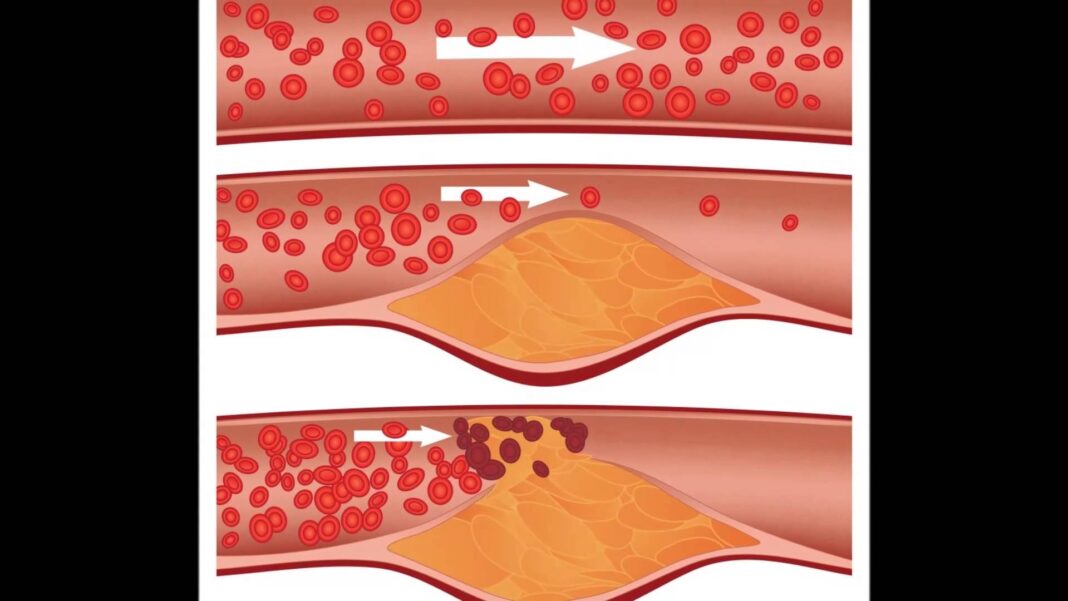As a first approximation it seems that the purpose of social media is to misrepresent medical information and to promote wellness gurus who basically have no idea what they are talking about. Part of the problem is that medical science is often complex, and the short attention-span format of social media often favors simple clean narratives. So “wellness influencers” dominate while genuine science communicators struggle to keep up.
Take the story of cholesterol. This has been challenging for medical scientists because it turns out to be very complex. Quickly, here is what we know. Cholesterol is a lipid (a fat) that is linked to lipoprotiens in the blood – this is the LDL and HDL particles. Cholesterol is very much a necessary biomolecule, used in hormone production, cell membranes, vitamin D, and bile acids. However, cholesterol can also build up on the inside of artery walls, causing plaques, inflammation, and increasing the risk of heart attacks and strokes.
That’s the simple part, and it is essentially correct, but the story gets complex. Based on that model it was originally recommended to restrict dietary cholesterol. But then it was found that dietary cholesterol does not translate to increased serum cholesterol, so the restrictions were not helpful. However, then we discovered that a certain subpopulation of superabsorbers do need to restrict their total dietary cholesterol.
Further, keeping a low LDL to HDL ratio is more important that total cholesterol. High HDL is protective, within limits, while low LDL is highly protective. While much of this is based on observational data, we also have data from studies looking at treating cholesterol, finding that treatments, like statins, reduce all-cause mortality, reduce cardiovascular death and events, and that they work for both primary prevention and in those with a prior cardiovascular event.
It is also clear that cholesterol biology is highly genetic. About 40-50% of the risk for high cholesterol and its contribution to CVD is genetic, while 50-60% is lifestyle.
While this overview is the current consensus based on lots of evidence, there is enough complexity in the data to have reasonable debate about some of the finer details. There is also plenty of fodder for unscrupulous wellness gurus to cherry pick and mispresent that data to confuse the public and promote their own brand and snake oil.
Here is a good example – they are discussing this 2023 Swedish study looking at extreme longevity. The study found: “Higher levels of total cholesterol and iron and lower levels of glucose, creatinine, uric acid, aspartate aminotransferase, gamma-glutamyl transferase, alkaline phosphatase, lactate dehydrogenase, and total iron-binding capacity were associated with reaching 100 years.”
The presenter in this video is making a very simplistic – and almost certainly wrong – claim, that the study supports the notion that cholesterol is an unalloyed good, and that higher cholesterol levels are good for your health.
First, we have to recognize that this is an observational study. As I often repeat, observational studies do not establish cause and effect because they are not controlled. There are many possible confounding factors. This is especially true to general outcomes like survival – which is rife with confounding factors.
In this study the authors conclude that the correlation with reaching 100 years of age among those with extreme longevity is likely a result of genetics. This is supported by some additional data looking at the children of centenarians. In other words – if you have a genetic tendency for longevity this may come with a tolerance of higher cholesterol. For example, people who have a risk of dying of cardiovascular disease as a result of high cholesterol have already been weeded out of this cohort.
The authors also point out that this data could mean that normal values for biomarkers may change as we age. This, of course, is often true – biology changes as we age. I should also point out that the subjects of this study did not have high cholesterol. Their total cholesterol was mostly in the normal range. But those who reached 100 were slightly higher than those who did not. There is no reason to think this tells us much about having high cholesterol in your 40s and 50s.
The bottom line is that this is an observational study with a likely very complex set of confounding factors. There is definitely a lot of survivor bias in the data – people who live into their 90s and beyond are not a representative population, and many factors have biased who remains alive at this age. Genetics is likely the overwhelming factor in this data, telling us something about the biology of people who live to extreme age.
What this data absolutely does not do is call into question the consensus that high total cholesterol and especially LDL cholesterol during middle age is a significant risk factor for cardiovascular disease, that it results from a roughly even mix of genetic and lifestyle factors, and that lifestyle and medication intervention to lower cholesterol reduces the risk of death and heart disease.
